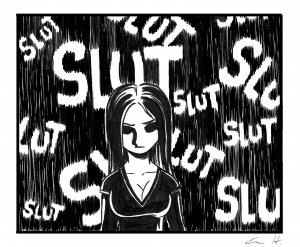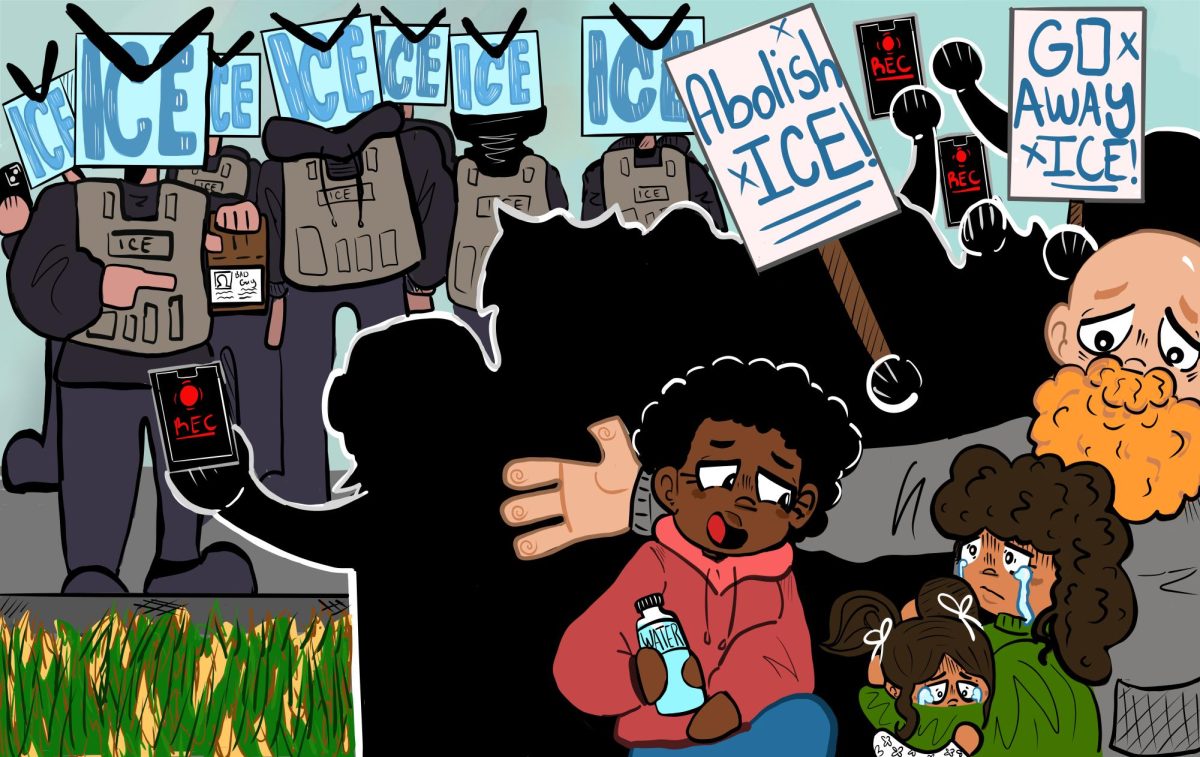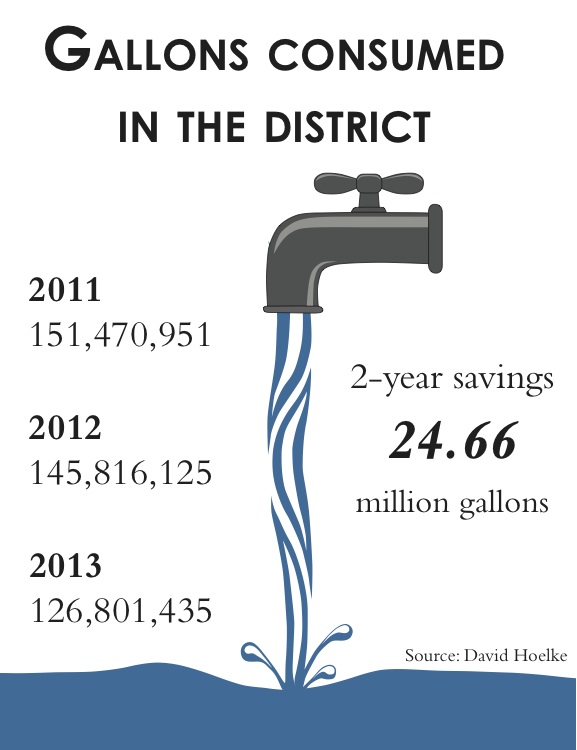“Slut.”

It’s a powerful word. Short, sharp, it cuts through the air with malice and leaves humiliation in its wake. It’s a word used to coerce women into conforming into the gender stereotype that society has built for them.
It’s easy to blurt out. Many of us have at one point. If a woman is showing a bit of cleavage: slut. If she is sexually active: slut. If she’s talking to an ex-boyfriend: slut. If she holds different values than most people: slut. Even if she’s raped: slut.
This occurrence is so common, it’s now coined “slut shaming.” Slut shaming is the degradation of women in regard to her sexual acts or feelings in hope that it will result in a sense of inferiority or guilt.
While the act of shaming women for sexual promiscuity is an immature disgrace alone, it also adds fuel to the fire of the double standard in our society, further segregating the sexes.
Slut shaming gives off a rancid odor of old meat that died with the gender stereotypes of the last century. Women are expected to be lady-like and innocent while still being sultry, sex-experienced deviants. “A lady in the streets, but a freak in the bed,” as Ludacris would say. But at the same time, men are encouraged to sleep around freely and to their heart’s content.
Why can a man be accepted, praised and high-fived for having multiple sexual partners, yet a woman who does the same is criticized and sometimes even shunned? By both men and women?
It doesn’t even make sense.
Society crafts men into being sexually insatiable while women are forced to sacrifice their sexual promiscuity in fear of being ridiculed. Women aren’t allowed to be sexual beings like men are.
It’s absurd to think that in 2014, we, as a nation, are still too prudish to acknowledge that women want to have sex. Is America so immature that we can’t fathom the idea that women can wear what pleases them and have no deeper meaning behind it?
Victims of sexual assault often find themselves silenced into fear of being labeled a slut. A common excuse men use to rape is “they were asking for it,” referring to the victim’s revealing articles of clothing.
Maybe even worse is that many times when women reach out to others for support after being assaulted sexually, the slut shaming is echoed in the responses of their family and peers — because she was “asking for it.”
Slut shaming can also take a more passive approach by influencing those who want to avoid falling into the “slutty” category. Some women might limit their behavior or wear modest clothes for fear of being shamed. This can stunt personal growth and hinder the individual’s ability to express themselves properly.
Society needs to realize that someone’s actions don’t concern anyone but himself or herself. It’s literally no one else’s business.
If a woman is showing a bit of cleavage: who cares? If she’s sexually active: who cares? If she’s talking to an ex-boyfriend: who cares? If her values differ: who cares? It certainly doesn’t justify using such a childish, spiteful insult.
Those who slut shame don’t respect women and are apparently lost in the wrong era.
























